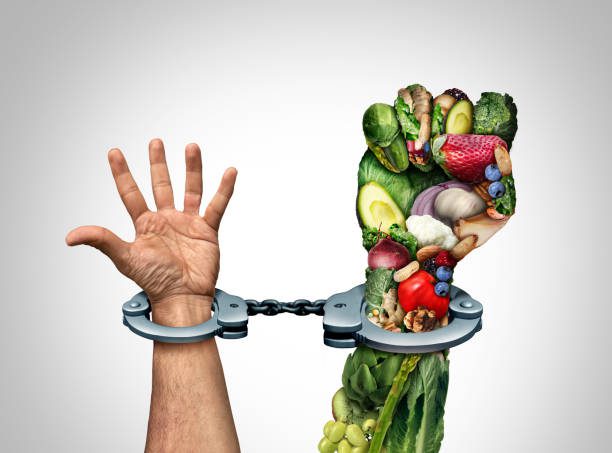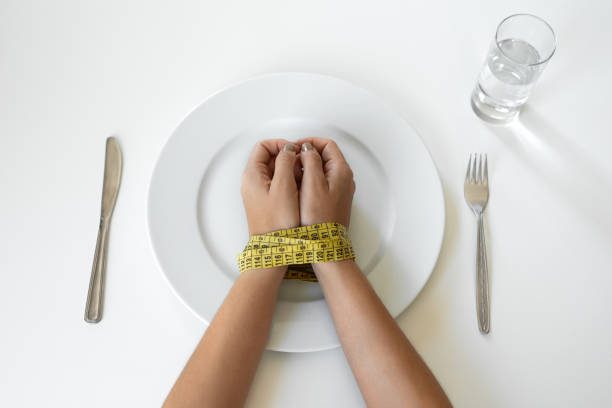This content is for informational and educational purposes only. Always consult a qualified healthcare provider.
Last Updated on February 25, 2025 by Pen Pixel
Most of us believe that eating healthy and indulging in cravings are two opposite sides of a never-ending battle. You’re either on a strict diet, counting calories and eating foods you don’t really like, or you’re enjoying life, indulging in every craving, and feeling guilty about it later.
But you don’t have to choose between the two. You can eat for pleasure and still eat for nutrition without ruining your health. The problem is, most people don’t know how. They think they must suffer to be healthy.
What if eating what you love and eating what’s good for you can exist in the same world? What if it isn’t about restriction but about understanding how food actually works?
📋 Table of Contents
The Key Takeaway.
Healthy eating or junk food, there is no middle ground. The truth is, you can enjoy any food and still be healthy. You can eat for pleasure without harming your body. You don’t need to suffer by eating tasteless meals or stop eating your favorite foods.
What Ruined Eating for Everyone?
For generations, people have been fed damaging ideas. I’m pretty sure you’ve heard things like this:
- Healthy food is boring.
- Junk food is bad, and if you eat it, you’re weak, you’ll die.
- You either eat clean or eat like trash, there’s no in-between.
This black-and-white thinking has done more harm than good. It has made you and I think that enjoying food means being unhealthy and that eating healthy means being miserable.
Who on earth did that?
But wait a minute, while writing this article, I remembered that our history tells a different story. Way before recent diets and counting calories, food was mainly about balance and enjoyment. Even when we were younger, we had meals that were both nutritious and seriously pleasurable. The idea that healthy eating must be restrictive is a modern lie.
So Why Do We Struggle With Balance Today?
It is simply because we’ve been taught all or nothing thinking when it comes to food. And it’s time to unlearn that and anything that concerns that.
Why You Can’t Stop Craving “Bad” Foods.
- The body needs satisfaction: Your brain is wired to seek pleasure from food. If you eat a tasteless, unsatisfying meal, your brain will push you to find something more enjoyable later. That’s why you’d often find yourself binge eating junk food.
- Restriction is a problem: The more you tell yourself, “I can’t eat that,” the more you will obsess over it. The moment you give in, you overeat because you don’t know when you’ll “allow” yourself to have it again.
- Processed foods are designed to be addictive: These companies use perfect combinations of salt, sugar, and fat to make foods that trigger cravings and override your natural hunger cues. What do you expect?
So listen to me when I say that the issue isn’t that you “love unhealthy food too much.” The issue is that you haven’t been taught how to make food work for you.
How to Eat for Pleasure and Nutrition.


Stop Calling Foods “Good” or “Bad.”
The moment you tell yourself a food is “bad,” you give it power over you. Instead of guilt-tripping yourself, start seeing food for what it is. It is fuel and enjoyment.
- A slice of cake isn’t “bad.” It’s a source of carbs, sugar, and fat that brings joy.
- A salad isn’t just “good.” It’s a mix of fiber, vitamins, and nutrients that keep you strong.
My Rule: If you eat something high in sugar and fat, pair it with something that gives your body what it needs. Did you eat some cake? Nice. Eat some protein later to stay full longer. Maybe you had some fries? Nice. Add fiber somewhere in your day to keep your digestion in check.
Don’t tell anyone I told you.
Use the 80/20 Approach.
This is not about eating “clean” 80% of the time and cheating 20% of the time. That’s still restriction. The real 80/20 approach is about crowding out, not cutting out. This way, you don’t feel deprived, and your body still gets what it needs.
- 80% of the time, eat foods that fuel you and not because you have to, but because they make your body feel good.
- 20% of the time, eat for pure joy. No guilt. No overthinking. No “making up for it” later.
Upgrade, Don’t Replace.
One of my biggest hacks to balancing pleasure and nutrition is upgrading your favorite meals instead of replacing them. The goal isn’t to swap one for alternatives. You are only making what you love eating better for you.
- If you want some ice cream, try adding nuts or fruit for extra fiber and healthy fats that slow down the sugar spikes.
- If you love fries, make them at home with real potatoes, olive oil, and season them with sea salt.
- If you love chocolate, dark chocolate is a better option.
Eat Like a Child. Seriously.
Have you noticed how children eat? They don’t care. They eat when they’re hungry and stop when they’re full. They don’t even feel guilty about it. I know that most adults lose this ability because of stress eating, diets, and stress. But you can fix that by relearning your natural eating patterns. This simple shift stops overeating and removes the cycle of guilt and bingeing.
- Eat when you’re truly hungry, not just because it’s “time.”
- Stop eating when you’re satisfied, not stuffed.
- Give yourself permission to enjoy food without guilt just like a child would.
Plan For Indulgence, Don’t React to Cravings.
Most people wait until they’re craving something, then eat it in a way that feels out of control. The solution?
- If you know you want some pizza, schedule a pizza night.
When indulgence is part of your routine, cravings lose their power. You won’t feel the need to “go all out” because you know you can enjoy it again soon.
What Does Science and History Say About Food Balance?
Ancient Foods Were Naturally Balanced.
- The Mediterranean cultures ate cheese, bread, and wine with vegetables, fish, and olive oil.
- Asian cuisines balanced fried foods with fermented vegetables for gut health.
Science Also Proves Food Can Be Both Pleasurable and Nutritious.
- A 2021 study from the American Journal of Clinical Nutrition found that people who allow themselves to eat “for pleasure” are less likely to binge.
- Research from Harvard University shows that combining nutrient-dense foods with pleasure foods (instead of separating them) helps regulate cravings naturally.
All of these just means that the more you allow pleasure, the less you crave in excess. This isn’t just theory, history and science prove this works.

